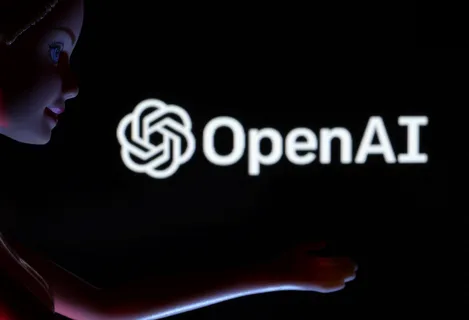Introduction
In recent developments, Mark Zuckerberg, the CEO of Meta (formerly Facebook), and Daniel Ek, the CEO of Spotify, have emerged as prominent advocates for the advancement of AI. Their collective push for open-source artificial intelligence represents a significant shift in the tech industry’s landscape and promises to have a profound impact on the European Union’s future in the realm of technology and innovation.
This post explores the motivations behind their advocacy, the potential benefits and challenges of open-source AI, and what it means for the EU’s future.

The Push for Open-Source AI
Mark Zuckerberg’s Vision
Mark Zuckerberg has been vocal about his belief in the transformative power of AI. His vision centers around the democratization of artificial intelligence technology, enabling broader access and innovation across various sectors.
By supporting open-source AI, Mark Zuckerberg aims to accelerate advancements in the field, promote transparency, and foster a collaborative environment where developers and researchers can freely contribute to AI development.
Spotify CEO’s Stance
Daniel Ek, the CEO of Spotify, has also championed the cause of open-source AI. Ek’s interest lies in leveraging AI to enhance user experiences and drive innovation in the music streaming industry. His advocacy for AI aligns with Spotify’s commitment to exploring new technologies and integrating them into their platform.
By supporting open-source initiatives, Ek envisions a future where AI tools and resources are more accessible, fostering creativity and improving the overall user experience.
Benefits of Open-Source AI
Fostering Innovation
One of the primary advantages of open-source AI is its potential to drive innovation. Open-source platforms provide a collaborative space where developers and researchers can share their findings, contribute to existing projects, and build upon each other’s work. This collaborative environment accelerates the development of new technologies and applications, leading to rapid advancements in AI capabilities.
Enhancing Transparency and Trust
Transparency is a crucial aspect of AI development, and open-source initiatives play a vital role in promoting it. By making AI algorithms and models publicly accessible, open-source AI enables scrutiny and validation from the global research community. This transparency helps build trust among users and stakeholders, ensuring that AI technologies are developed and deployed ethically.
Lowering Barriers to Entry
Open-source AI can significantly lower the barriers to entry for individuals and organizations interested in developing and utilizing AI technologies. With freely available resources and tools, smaller companies and independent developers can access cutting-edge AI technology without the need for substantial financial investment. This democratization of AI fosters a more diverse and inclusive tech ecosystem.
Challenges and Considerations
Security and Privacy Concerns
While open-source AI offers numerous benefits, it also presents challenges related to security and privacy. The public availability of AI models and algorithms can potentially expose vulnerabilities that malicious actors could exploit. Ensuring robust security measures and privacy protections is essential to mitigate these risks and safeguard user data.
Quality Control and Standards
Maintaining high standards of quality in open-source AI projects can be challenging. With numerous contributors and varying levels of expertise, ensuring consistency and reliability across different AI models and applications requires effective governance and quality control mechanisms. Establishing clear guidelines and standards is crucial for ensuring the effectiveness and safety of open-source AI technologies.
Impact on the EU’s Regulatory Landscape
Adapting to New Regulations
The rise of AI has significant implications for the EU’s regulatory landscape. As the EU continues to develop regulations and policies related to artificial intelligence, incorporating provisions for open-source initiatives will be crucial.
Policymakers will need to address issues such as intellectual property rights, data protection, and the ethical use of AI to create a balanced regulatory framework that supports innovation while safeguarding public interests.
Promoting Collaboration and Competitiveness
The EU stands to benefit from fostering a collaborative environment for open-source AI development. By supporting initiatives that encourage cross-border collaboration and knowledge sharing, the EU can enhance its position as a leader in AI innovation.
Additionally, promoting AI can drive competitiveness within the European tech industry, positioning it as a hub for cutting-edge technologies and attracting investment and talent.
Conclusion
Mark Zuckerberg and Daniel Ek’s advocacy for open-source AI represents a pivotal moment in the evolution of artificial intelligence. Their support for open-source initiatives promises to drive innovation, enhance transparency, and lower barriers to entry, with far-reaching implications for the EU’s future.
As the EU navigates the challenges and opportunities presented by open-source AI, it will be essential to strike a balance between fostering innovation and ensuring responsible development.
We’d love to hear your thoughts on the impact of open-source AI and its implications for the EU’s future. Please leave a comment below and join the conversation!






